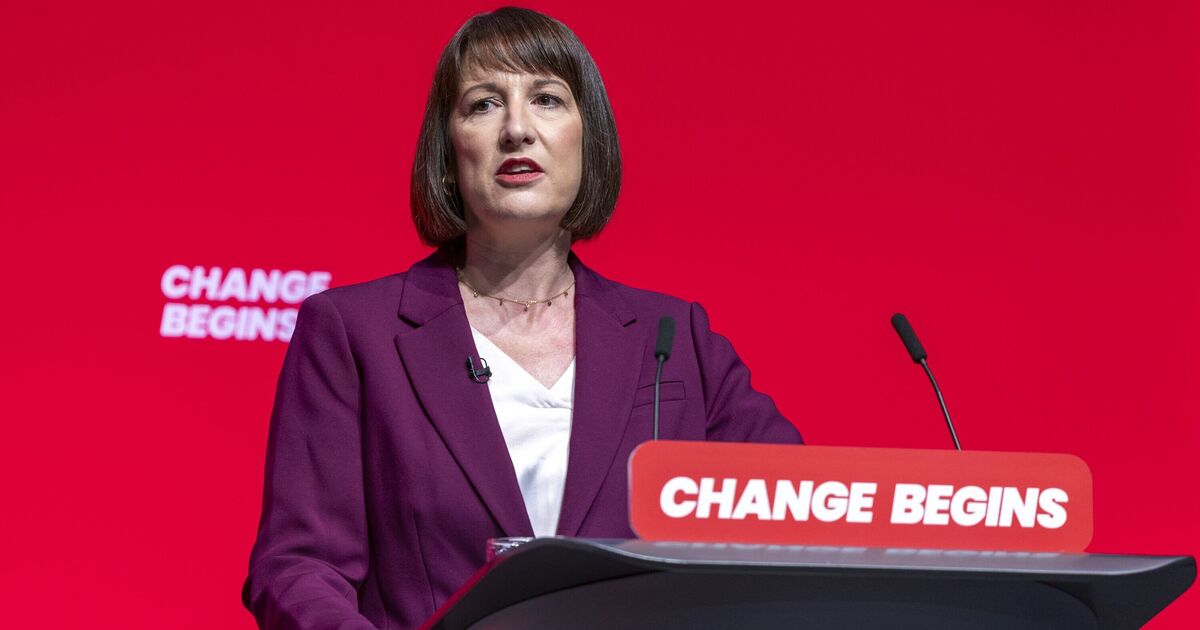
Government takings through Inheritance Tax surged by £400 million in the first six months of this year, taking them up to £4.3 billion.
The 10 percent rise was a welcome boost to government coffers amid concerns about a black hole in the nation’s finances, however the Chancellor is rumoured to be targeting a rise in death taxes in the Budget next week.
This could include reducing the current figure of £365,000, which is the amount people can leave to loved ones without paying Inheritance Tax (IHT).
Another option would be removing exemptions to IHT, such as passing on certain types of shares, family businesses, pension pots, and agricultural land.
There is also a suggestion that the rules on giving cash away free of inheritance tax if the individual lives for at least seven years could be changed to extend this period to 10 years.
Currently, just 4 percent of estates are liable for inheritance tax, which means the vast majority of people are not affected by it, while people leaving more than £10 million typically reduce their liability by taking advantage of exemptions.
Nicholas Hyett, Investment Manager at Wealth Club, said: “Inheritance tax is an absolute cash cow for His Majesty’s Revenue and Customs, which is why it remains in the spotlight ahead of next week’s Autumn Budget. No one knows what changes will be announced, but most agree there will be some attempt to milk more revenue from estates.
“The great thing about inheritance tax from the government’s point of view is that it’s complicated, with a whole host of rules that could be tweaked to boost the tax take. Tweaks could include changes to Business Relief, including on AIM shares, making pensions subject to inheritance tax and extending the time period needed to make gifts inheritance tax-free.
“Whilst this may only affect a minority of people, it will infuriate those it does and could still do serious economic damage.”
He added: “Business Relief helps family-owned businesses pass between generations as well as encouraging investors to invest in young, fast-growing businesses.
“Removing the IHT-free status of pensions will also be damaging. It is in any government’s interest that people can support themselves in retirement. Constantly changing the rules puts people off saving in a pension, whether they are rich or poor.
“All governments need to balance short and long-term priorities. Throwing the kitchen sink at IHT may be good politics in the short term, but it risks doing long run damage.”
Laura Hayward, Tax Partner at professional services and wealth management firm Evelyn Partners, said there has been a rush of wealthy people to rearrange their finances in an attempt to avoid any hikes in IHT.
“Any changes aimed at increasing the IHT take beyond this fiscal drag effect are likely to reap outsize results over the coming years as the baby boomer generation reaches average mortality,” she said.
“So it’s no surprise IHT is at the centre of Budget speculation again, with firm reports claiming business and agricultural property reliefs will be reformed and the gifting rules revamped.
“We have spoken to many people this summer who were bringing forward plans to gift substantial assets, not just to start the seven-year clock ticking, but also to pre-empt an expected Capital Gains Tax rise.”
Andrew Tully, Technical Services Director at Nucleus, said changes to IHT “could be made such as scrapping or updating the rules on agricultural land and business relief”.
He added: Currently, a person can claim up to 100 percent relief on the inheritance of agricultural land if it is being actively farmed. This could be reduced, or certain limitations placed on the maximum value of the relief.
“Changes could also be made to the IHT benefits of holding shares on the Alternative Investment Market (AIM).
“AIM shares need to qualify for Business Property Relief and be held for more than two years at the time of death to qualify for IHT exemption. However, this may run contrary to the desire to increase investment in UK businesses, to drive further growth.”

















